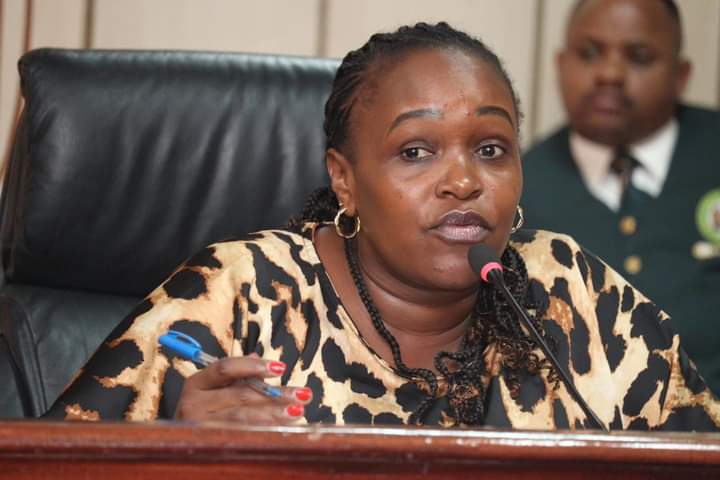
Kenyans may soon obtain their birth certificates at the constituency level if an amendment Bill currently before Parliament sails through.
The Births and Deaths Registration (Amendment) Bill, 2024, proposed by Gilgil MP Martha Wangari has already received support from the Committee on Administration and Internal Security.
This paves the way for it to progress to the Second Reading stage.
The Bill proposes the establishment of at least one birth and death registration office in each constituency across the country.
This would ensure Kenyans, particularly those living in rural areas and marginalised communities acquire it at ease.
It will also reduce the time and effort required to obtain the certificates which are essential for accessing education, healthcare, employment, and other social services.
It seeks to amend the Births and Death Registration Act (Cap 149) to ensure that the relevant Cabinet Secretary establishes a registration office in each constituency.
Wangari is further proposing an amendment to section 5 of the Act to provide that the CS shall appoint one registration area in each constituency.
The enactment of the Bill will ensure there are at least 290 such offices.
According to Wangari, there are only 143 officers offering the services across the country making it a challenge for many Kenyans to obtain these essential documents.
By increasing the number of registration offices, the government aims to make it easier for citizens to exercise this right and access other important services that require proof of identity.
The Act currently requires the CS to appoint fit and proper persons to be the registrars and deputy registrars for each registration area and a fit and proper person to be the registrar of births and deaths occurring outside Kenya.
Appearing before the committee in a session chaired by Homa Bay Town MP Peter Kaluma, Wangari reassured the members that the contents of the Bill were accurate.
According to the Law Society of Kenya (LSK), Article 6(3) of the Constitution requires national and state organs to ensure reasonable access to its services in all parts of the country.
"The amendment is also expected to improve the accuracy and completeness of birth and death records, which are crucial for planning and development," said Wangari.
By having more registration offices, it will be easier to collect data on births and deaths, which can be used to inform policies and allocate resources effectively.

![[PHOTOS] Kindiki inspects works at regional centre in Kwale](/_next/image?url=https%3A%2F%2Fcdn.radioafrica.digital%2Fimage%2F2025%2F04%2Fc68aa00b-39bc-4214-bafe-80e8e38b1e60.jpg&w=3840&q=100)









